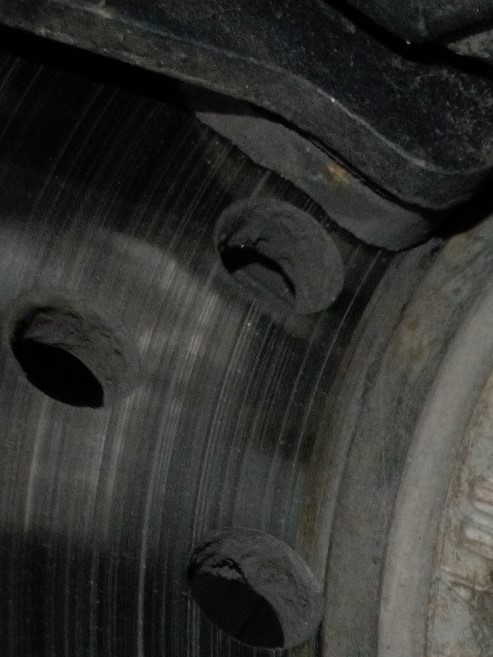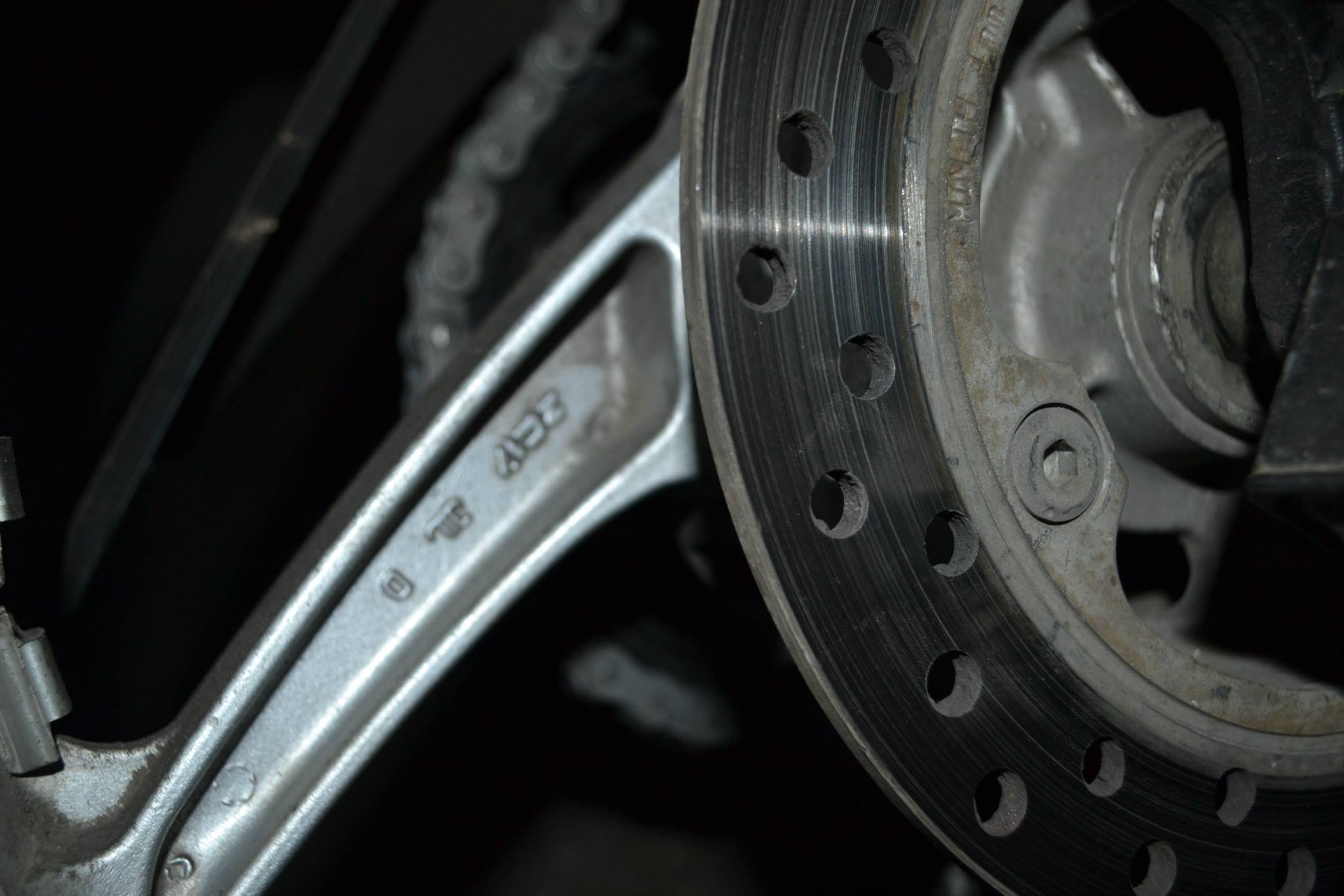About my bike
- Model: Honda CBR 250R
- Total Run: 17500kms
- Total Time: 1 year 1 month (rotor & break fluid never changed, break pad changed 6 months back)
- Break Fluid Level: 3mm above lower line
Issue:
I just got my brake pads changed, both rear and front from Authorized Honda Service Center.
But there is a problem with the rear brake pad. When I press the pedal, it's ineffective at first, though it does stop the tyre with a harder push.
My mechanic says that brake pads take a while to set into their place, and it's only after 100 - 200 kilometres of driving that you would be able to achieve the pedal's fully sensitive braking.
I have driven 200kms but I still find my pedal initially ineffective on light pressing while very light breaking on medium pressing though rock solid effect on a hard push.
Update:
- I have checked my rotor. The overall surface is smooth on touching and is not greasy. But area near inner end of the rotor looks scratchy and rusty.
Close View of Rotor

Another view of Rotor

- I bleeded the break by opening the valve, pressing the break, closing the valve and releasing the break. I did this thrice and I do think I have achieved a bit improvement but not perfection yet.
What should I do to make my breaks effective as new?
